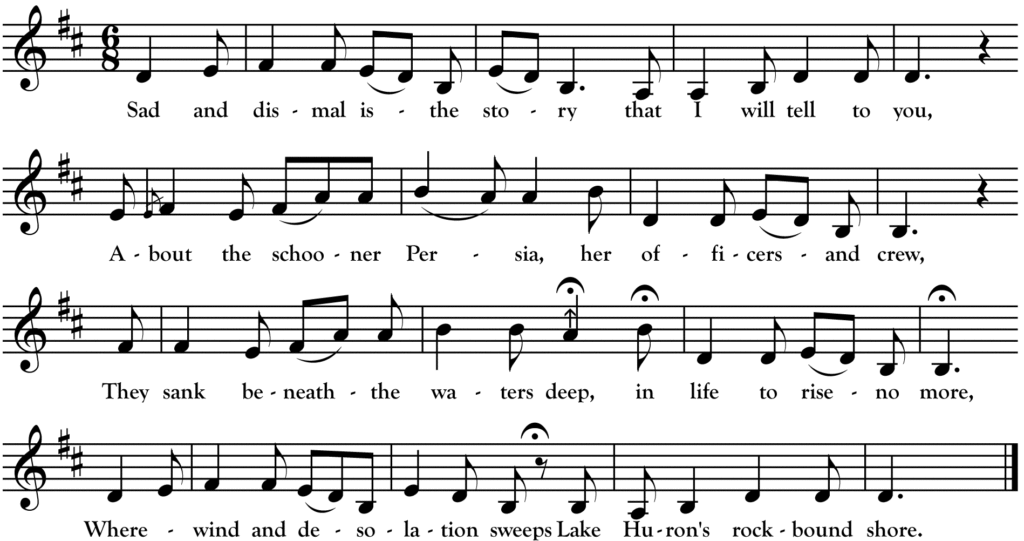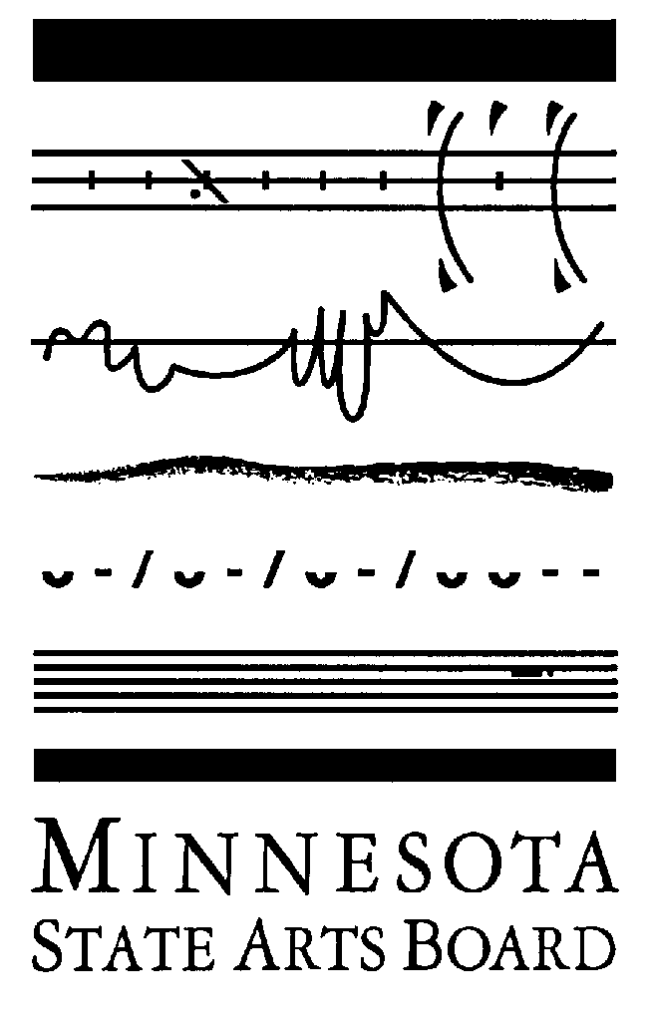Persian’s Crew (Revisited)
Sad and dismal is the story that I will tell to you,
About the schooner Persia, her officers and crew;
They sank beneath the waters deep in life to rise no more,
Where wind and desolation sweeps Lake Huron’s rock bound shore.
They left Chicago on their lee, their songs they did resound,
Their hearts were filled with joy and glee, for they were homeward bound;
They little thought the sword of death would meet them on their way
And they so full of joy and life would in Lake Huron lay.
In mystery o’er their fate was sealed, they did collide, some say,
And that is all that will be revealed until the judgment day;
But when the angels take their stand to sweep these waters blue,
They will summon forth at Heaven’s command the Persian’s luckless crew.
No mother’s hand was there to soothe the brow’s distracted pain,
No gentle wife for to caress those cold lips once again;
No sister nor a lover dear or little ones to moan,
But in the deep alone they sleep, far from their friends and home.
Now around Presque Isle the sea birds scream their mournful notes along,
In chanting to the sad requiem, the mournful funeral song,
They skim along the waters blue and then aloft they soar,
O’er the bodies of the Persian’s crew that lie along the shore.
____________________________________________
We turn to the Great Lakes this month with a shipwreck song that was recorded from Minnesota singer Michael C. Dean in 1924 (click to hear the field recording!). It commemorates the 1868 wreck of the schooner Persian in Lake Huron just east of the Straits of Mackinac. I wrote about it in my April 2014 post but return to it here as The Lost Forty just posted the above video of us doing our arrangement of it. For our arrangement, Randy and I pared down Michael Dean’s version to five verses. We filmed the song in Grand Marais, Minnesota on the shores of Lake Superior.
It is likely that Michael Dean himself had some experience sailing on Great Lakes ships. In a letter to folksong collector Robert Frothingham, Dean wrote that he learned some of his songs during his “wandering around on the Lakes” and collector Franz Rickaby, who met Dean in 1923, referred to him as a “sailor.” Great Lakes shipping operations provided a summer job for men who did winter logging work in the 1870s when Dean was rambling around Michigan and other Great Lakes states. In fact, he could have just as easily learned the song in a logging camp as the same repertoire passed around among men working both types of seasonal jobs.
This activity is made possible by the voters of Minnesota through a grant from the Minnesota State Arts Board, thanks to a legislative appropriation from the arts and cultural heritage fund.


